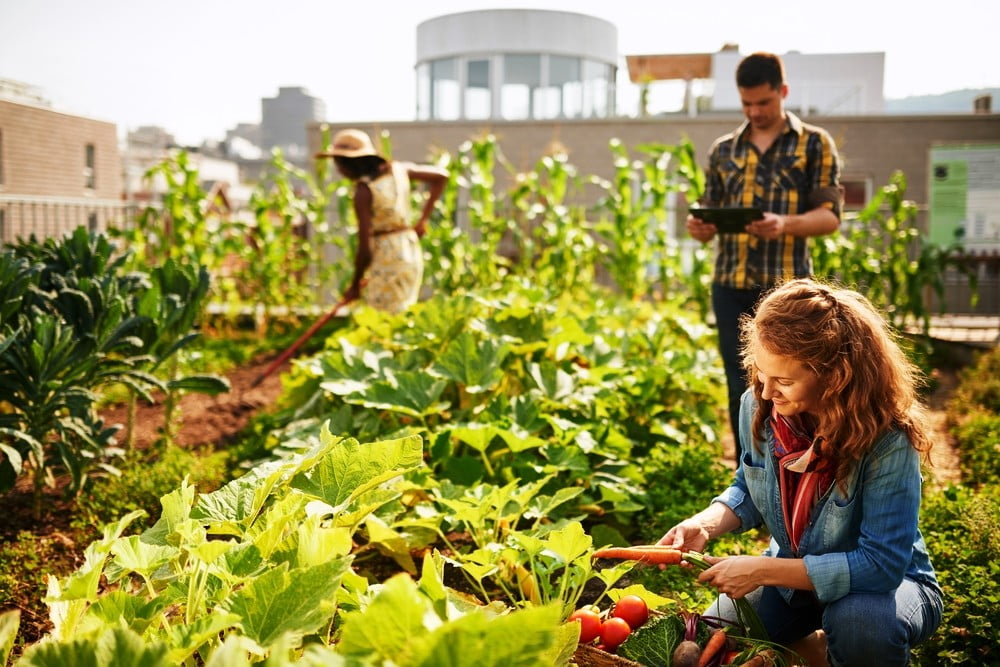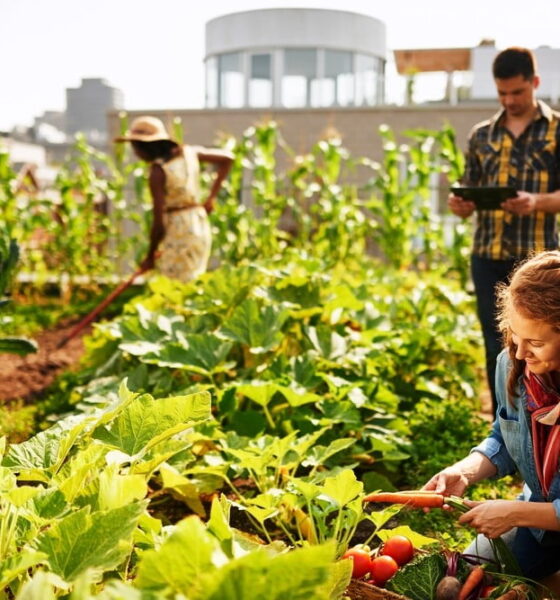

Lifestyle
Gardening Improves Mental Health
It’s a pretty well-known fact that plants can improve your health. Some plants have medicinal properties that treat minor ailments like sunburn and others improve air quality. From trees converting carbon dioxide to oxygen and houseplants cleaning the air in your home, plants are nature’s way of making our world healthier.
Whereas it’s scientifically proven how plants improve our environment, they are also associated with improving your mental health. Houseplants can help to boost your mood and improve concentration!
If you want to learn more about the mysteries of how outside factors affect your brain, you should look into a neuroscience major. This field of study involves how to better understand thoughts, emotions and behavior.
Life Lessons
Being outside in the sunshine always helps to boost your mood and overall feeling of well-being. Think about all the added benefits that tending to a garden can provide. One of the biggest sources of stress in your life boils down to trying to control things you can’t. Planting and cultivating a garden can help you embrace acceptance; learn the peace of mind and lowered stress levels that come with accepting that some things are beyond your control.
When you plant a garden, you start by making the best environment you can for the plants to thrive. You feed it with sunlight and water and weed out things that inhibit its growth. You do everything you can to let the plants grow, but ultimately, it’s up to Mother Nature. The big picture is seeing how despite your best efforts, you aren’t in control of the final outcome.
Growth
Gardens, like life, are unpredictable. You have no idea if a bug infestation or hungry wildlife will interfere with its success. Instead of viewing that nuisance as a failure, you take it in your stride as a learning curve. Things didn’t turn out as you’d hoped, so you brainstorm how to avoid the pitfalls that caused the demise. This is the same approach you should apply to your life. When things don’t go as planned or how you’d hoped they would, don’t beat yourself up as failing. Instead, identify what went wrong and how you’ll modify your approach in the future. All of life’s experiences can be a source of growth if you let them.
Impact
Gardening can impact your life in a few ways. It’s a hobby that’s proven to lower stress and anxiety. In fact, horticultural therapy has helped to improve both chronic and acute mental health conditions. People have reported feeling a sense of happiness by getting involved in gardening. It can also improve your physical health because of the activity involved in taking care of a garden. When you couple that with the benefits of eating the fruits of your labor, those who actively garden improve overall nutrition. In time, gardening can lower your BMI and cholesterol.
Nature has a direct impact on overall happiness and life satisfaction. It restores cognitive abilities like concentration because it draws your attention effortlessly. One study has shown an improvement in focus for children with ADHD by simply taking a walk in a park. Those same children didn’t get the same benefit from walking in an urban setting.
Social Changes
When gardening, you’ll be checking on the process of your plants often. Being outside tending to your garden, you’ll have more opportunities to interact with a passing neighbor walking their dog. It may even lead to conversations about their own gardening adventures and swapping homegrown fruits and vegetables.
Gardening can help improve both your mental and physical health and give you a sense of pride and satisfaction. What will you plant this Spring?


 Environment12 months ago
Environment12 months agoAre Polymer Banknotes: an Eco-Friendly Trend or a Groundswell?

 Features11 months ago
Features11 months agoEco-Friendly Cryptocurrencies: Sustainable Investment Choices

 Features12 months ago
Features12 months agoEco-Friendly Crypto Traders Must Find the Right Exchange

 Energy11 months ago
Energy11 months agoThe Growing Role of Solar Panels in Ireland’s Energy Future
















